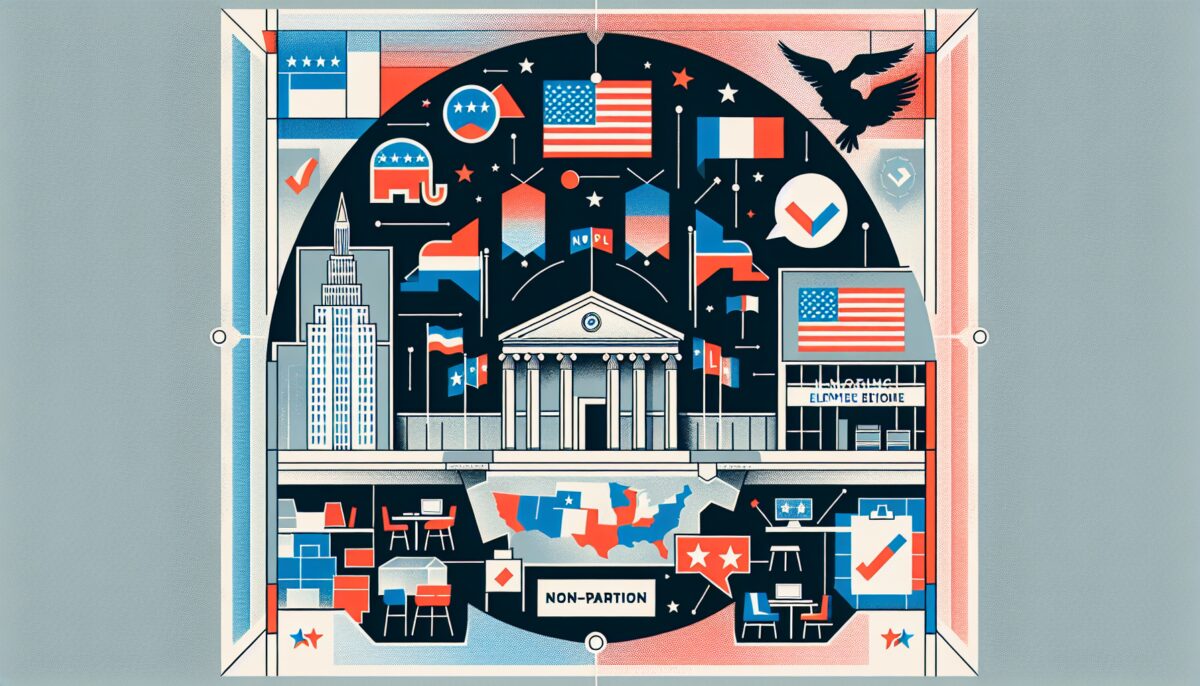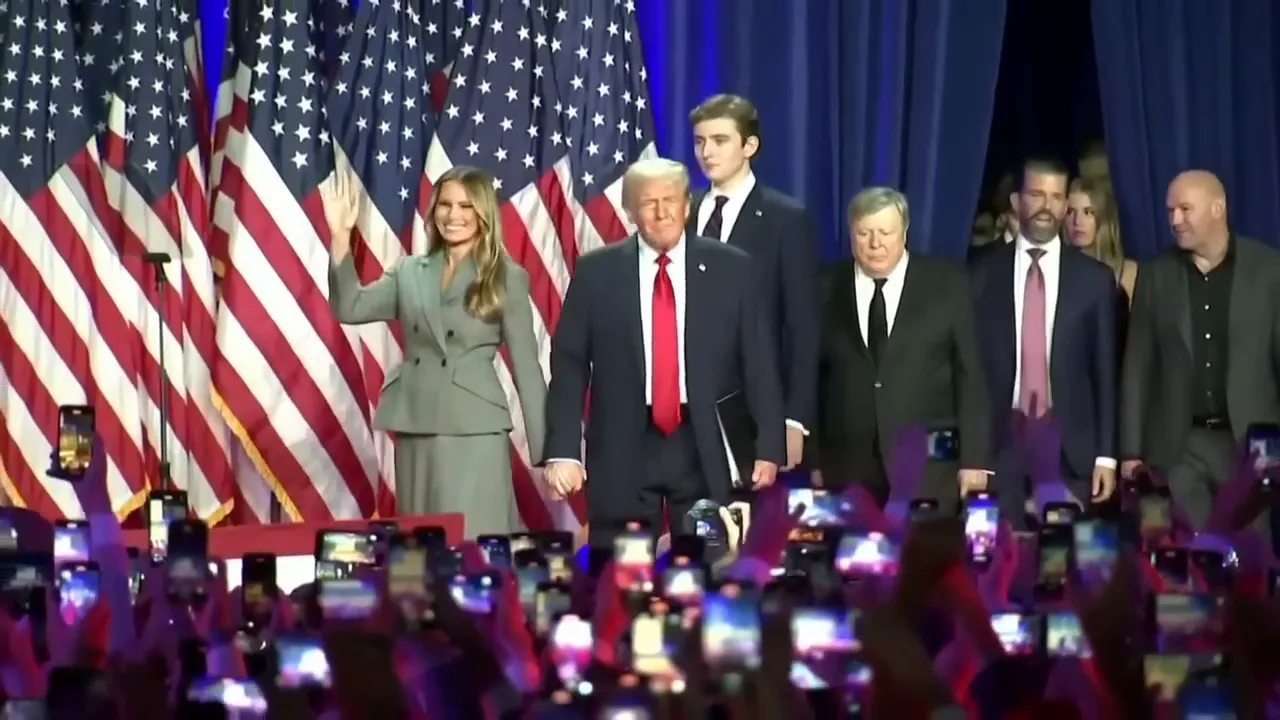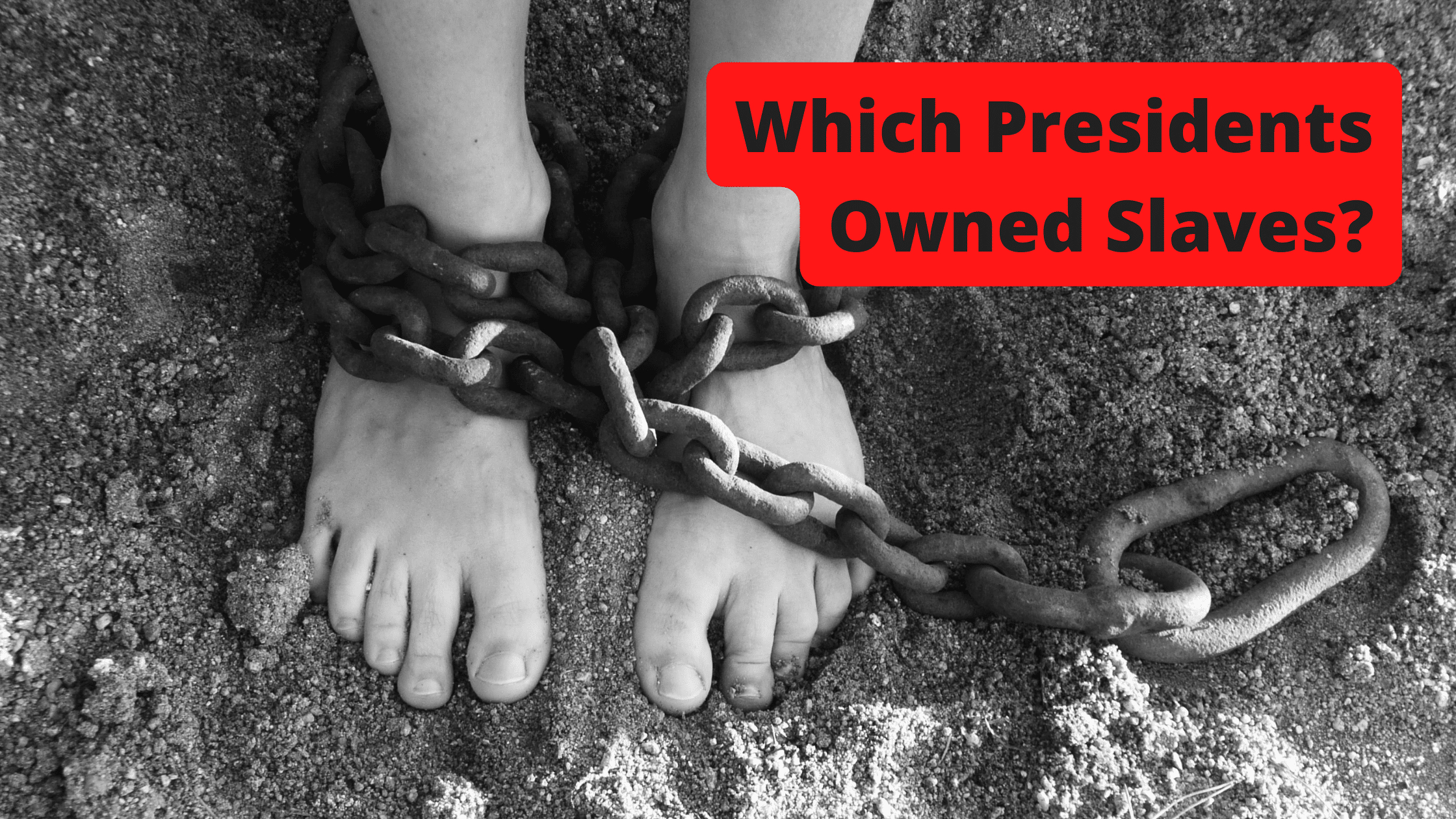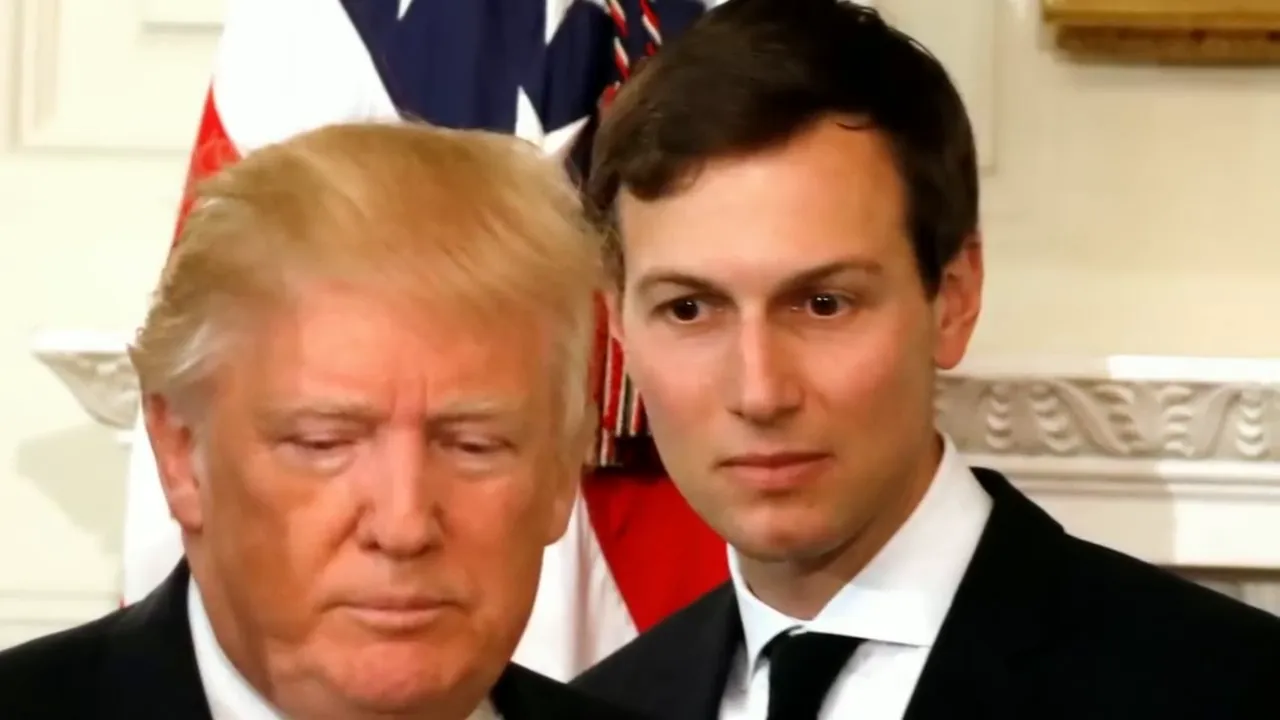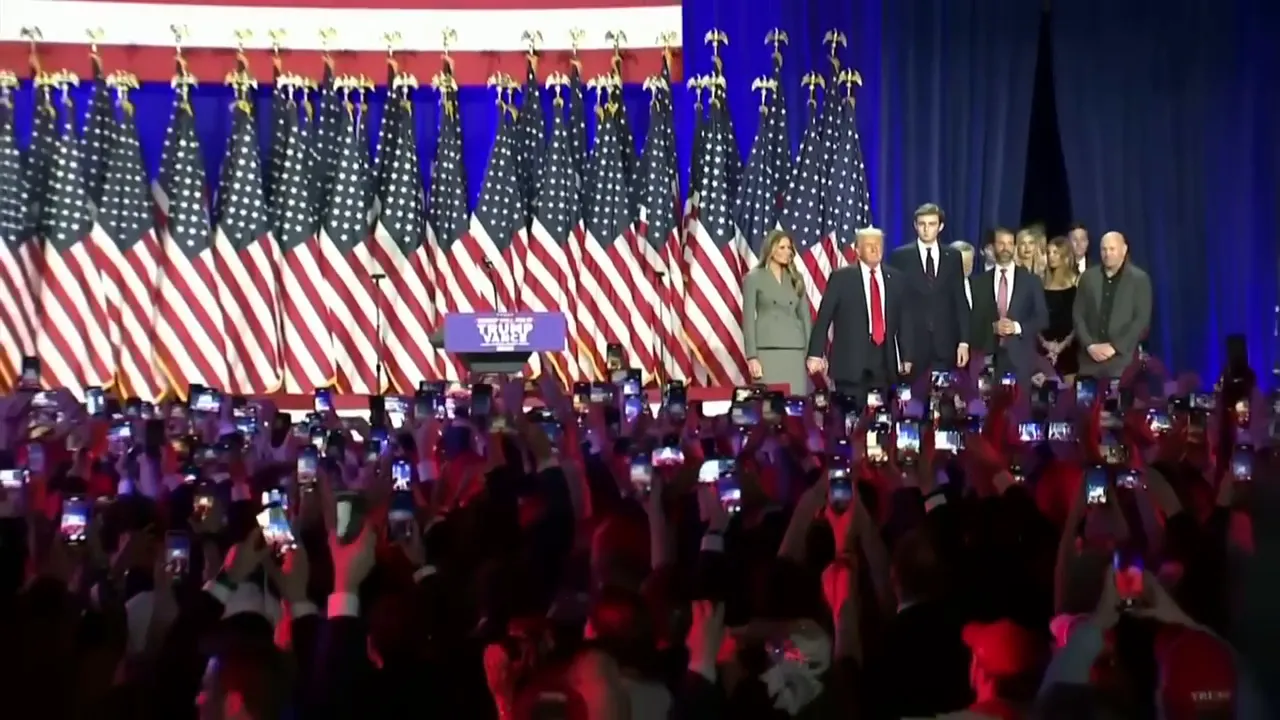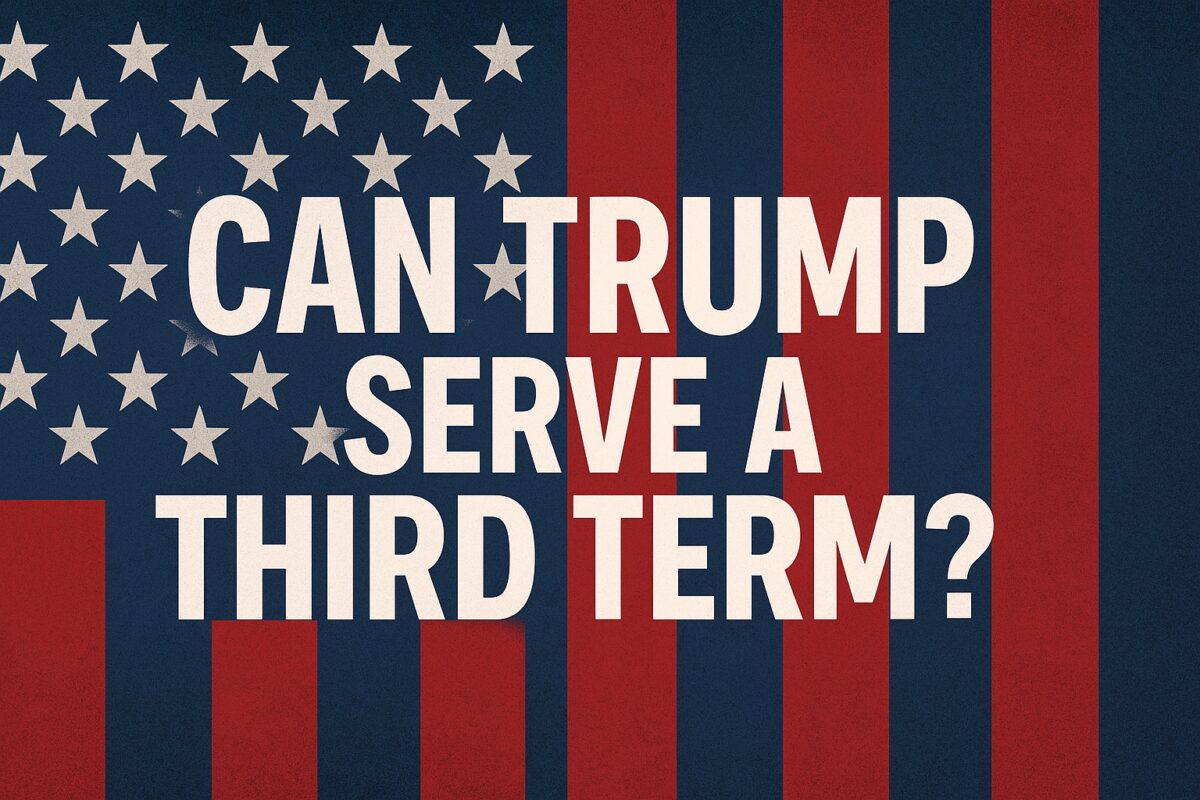Table of Contents
ToggleIn this post, we will examine both campaigns, the shifting dynamics within the Democratic Party, and what we can expect in the near future as Trump prepares to lead once again.
Introduction to the Election Night
Election Night is always filled with excitement and tension. As the votes are counted, people across the country eagerly await the results. This particular night was no different, with millions glued to their screens, hoping to see their candidate declared the winner. The atmosphere was electric, with supporters celebrating and others anxiously biting their nails.
The Polling Predictions and Reality
Before the election, many polls indicated a close race. However, as the night progressed, it became clear that the predictions weren’t matching reality. Trump was ahead in several swing states by margins of 1 to 4%.
Trump Campaign’s Confidence
The Trump campaign entered Election Night with a strong sense of confidence. Despite some chaos leading up to the election, they believed they had a solid chance of victory.
Democratic Campaign’s Confidence
Interestingly, the Democratic campaign also felt confident in their chances. They believed the tide was turning in their favor, but as the results came in, this confidence quickly turned into shock. Many were left wondering how they had miscalculated the mood of the voters.
The Overall Election Results
As the night unfolded, it became evident that Donald Trump had won decisively. He secured key swing states and flipped the presidency, leaving the Democratic Party in a state of disbelief. The Republican Party was celebrating a significant victory, while Democrats were left to grapple with what went wrong.
Democratic Party’s Reflection on the Loss
In the aftermath of the election, the Democratic Party faced tough questions. They needed to understand why they lost and how they could improve in the future. Many leaders expressed feelings of disappointment and confusion about their misread of the electorate.
Voter Preferences and Economic Factors
Voter preferences played a crucial role in the election outcome. Economic issues, particularly inflation, were top of mind for many voters. The rising costs of everyday items, like groceries, made a significant impact on how people cast their votes. This economic reality overshadowed many of the Democratic Party’s messages.
The Impact of Inflation on Voting Behavior
Inflation has a powerful effect on how people vote. When prices rise, voters blame the party in power. In this recent election, many voters were worried about their finances, which led them to favor candidates who promised to address these issues.
For many families, inflation is not just a statistic; it’s a daily struggle. Rising costs for essentials like food and gas can change how people feel about their government. For example, the price of eggs increased by 83% in just one year. This stark reality made voters reconsider their choices.
In areas where inflation hit hardest, candidates who acknowledged these concerns gained support. Voters were looking for leaders who understood their struggles and offered real solutions. This shift in focus from traditional political issues to economic realities played a crucial role in the election outcome.
Lessons from the Democratic Party Strategy
The Democratic Party is now reflecting on its strategy. Many believe they miscalculated the issues that mattered most to voters. Instead of focusing solely on their progressive agenda, they needed to address the economic fears of everyday people.
One lesson learned is the importance of connecting with the base. The Democratic Party may have overlooked the concerns of their core supporters while trying to appeal to moderate voters. This misstep led to a lack of enthusiasm among their base, which impacted voter turnout.
Looking Ahead to the Midterms
The Democrats must learn from their recent loss. They need to prioritize economic issues and showcase how their policies can benefit families struggling with inflation.
On the other hand, the Republican Party is likely to double down on their messaging about economic management. They will focus on how they can provide solutions to the economic challenges that many Americans face. This could give them an advantage in the upcoming elections.
Trump’s Administration: Key Appointments
With Donald Trump back in office, the focus turns to his appointments. Who he selects for key positions will signal his administration’s direction. For instance, the choice of Secretary of Defense and Attorney General will be critical in shaping policies.
Trump’s previous administration was known for its controversial decisions. Appointments that lean towards hardline policies could indicate a more aggressive stance on issues like immigration and economic management.
Potential Policies Under Trump
Trump is expected to push for policies that align with his campaign promises. This includes a focus on tariffs and potential changes to immigration policies. The idea is to create a strong economic environment while addressing security concerns.
Tariffs may be a significant part of his economic strategy. Trump believes that imposing tariffs on foreign goods will protect American jobs and industries. This approach, however, could lead to higher prices for consumers if companies raise their costs to offset the tariffs.
The Role of Tariffs in Trump’s Agenda
Tariffs are a central theme in Trump’s economic plan. He views them as a tool to level the playing field for American businesses. By taxing imported goods, he aims to encourage consumers to buy domestic products.
However, this strategy comes with risks. While it may boost certain industries, it can also lead to trade wars. Other countries may retaliate with their tariffs, which could hurt American exports and raise prices for consumers.
Immigration Policies and Deportations
Immigration is another area where Trump is expected to take a strong stance. He has hinted at mass deportations, particularly focusing on convicted criminals. This approach aims to address safety concerns while fulfilling his campaign promises.
The logistics of mass deportations raise questions. While targeting criminals may seem straightforward, the reality is more complex. Many undocumented immigrants have families and roots in the community, which complicates the situation.

Get Smarter on US News, History, and the Constitution
Join the thousands of fellow patriots who rely on our 5-minute newsletter to stay informed on the key events and trends that shaped our nation's past and continue to shape its present.
As Trump moves forward with his agenda, the public will be watching closely. The balance between enforcing immigration laws and maintaining humanitarian considerations will be a significant challenge for his administration.
Concerns About Family Separations
One of the most pressing issues with Trump’s immigration policies is the potential for family separations. During his previous administration, the practice of separating children from their parents at the border drew widespread condemnation.
Many activists and organizations are concerned that a return to strict immigration enforcement could lead to similar situations. Families could be torn apart, causing emotional and psychological harm to both children and parents. This is a critical point of contention for many voters.
Moreover, the logistics of mass deportations raise questions. If the administration aims to remove undocumented immigrants, how will they ensure that families stay together? The conversation about mass deportations is complex and fraught with ethical considerations.
Influence of Elon Musk in the Trump Administration
Elon Musk’s involvement in the Trump administration could signal a new approach to technology and business. His relationship with Trump has been notable, especially given Musk’s influence in the tech industry.
As an innovator and billionaire, Musk’s ideas may shape policies, particularly those involving infrastructure and technology. His access to the president reflects a shift in how business leaders can influence government decisions.
However, this relationship also raises questions about the implications of having business interests closely tied to government policies. Will decisions be made in the best interest of the public or for personal gain? This is a concern for many citizens who fear that corporate interests might overshadow public welfare.
Business Leaders and Political Favor
The relationship between business leaders and political figures is not new. However, the extent to which these alliances influence policy is increasingly scrutinized. Many business leaders are eager to curry favor with the Trump administration, believing it will be beneficial for their companies.
This trend raises questions about the integrity of political decisions. Are policies being shaped by what is best for the public, or are they being driven by the interests of influential corporations? This concern is especially relevant in areas like environmental regulations and healthcare.
As the Trump administration moves forward, it will be essential to monitor how these relationships affect policy-making. Transparency will be crucial in ensuring that the interests of the public are prioritized over those of powerful business leaders.
Conclusion: Trump’s Mandate and Future Policies
Trump’s victory has given him a mandate to pursue his agenda with renewed vigor. His focus on tariffs and immigration will likely dominate his administration’s early days, but the implications of these policies are far-reaching.
As he navigates these complex issues, the administration must consider the impact on families, communities, and the economy. The balance between enforcing laws and protecting human rights will be a significant challenge.
Looking ahead, both supporters and critics of Trump will be watching closely. The decisions made in the coming months could shape the future political landscape for years to come.
